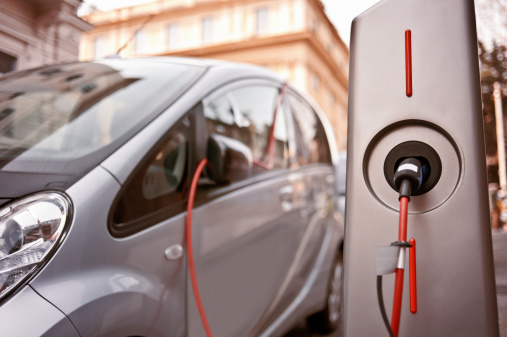The future of mobility (it’s not all flying cars)
9 July 2018
In a series of blogs, Anne Campion, Manufacturing Lead at the GC Business Growth Hub, will explore each of the four Grand Challenges identified in the government’s Industrial Strategy and consider how SME manufacturers can embrace the exciting opportunities ahead. We start with the future of mobility.
Last year UK government launched its modern Industrial Strategy. The aim: to build an economy fit for the future and become a world leader in the industries that will define it.
Laid out in the Strategy are a series of ‘Grand Challenges’ designed to put the UK at the forefront of four global trends that will transform industries and societies around the world: Artificial Intelligence, clean growth, the future of mobility and an ageing society.
So where do small and medium sized firms fit into all of this?
What mobility means to you
“We are on the cusp of a profound change in how we move people, goods and services around our towns, cities and countryside.” Industrial Strategy
At its core mobility is about getting from A to B, be it package or passenger, and we’re entering an era of radical change.
Not only are we investing in huge new infrastructures like HS2, the fundamental nature of transport is also changing. Urban centres are being redesigned to cut out congestion and pollution, while the rise of autonomous vehicles and ride-hailing services are pushing business models away from vehicle ownership towards ‘user-ship’ and journey-sharing.
Meanwhile, journey times are being squeezed as customers and consumers expect next-day deliveries and services on-demand.
Cleaning up our act
While we wait for a future of autonomous, self-driving cars, one trend that is definitely already here is the shift to low carbon transport. That’s why the first mission set out by government in the future of mobility challenge is to make the UK a world leader in zero emission vehicles.
We will explore the wider clean growth agenda in another blog, but one thing worth mentioning here is the need for SMEs to keep up with plans to curb vehicle emissions in our cities and towns.
Meeting legal air quality limits has been a struggle for government in recent years and the pressure is on city leaders to curb urban congestion and the pollution it causes. Diesel engines are particularly a problem, and older vehicles may soon find it difficult to gain access to some of the most polluted urban areas.
This doesn’t have to mean big investments in switching to an electric fleet - although that is certainly the future long-term. Here in Greater Manchester, Mayor Andy Burnham is looking to incentivise behaviour change first by encouraging car sharing and flexible working practices to reduce rush hour traffic.
These are measures SMEs can and should get on board with. Changing shift patterns may pose difficulties for manufacturers, but there are many benefits - flexibility can also help boost staff morale and is a top priority for millennial jobseekers.

Managing your logistics
Another area for manufacturers to consider is the efficiency of their distribution and logistics - are there smarter ways to move goods and services around in a future dominated by impatient customers and low carbon transport options?
Rationalising deliveries is a good place to start. There may be opportunities to bundle freight to reduce the number of vehicles running at less than full capacity, in some cases by working with other businesses and suppliers on a collaborative basis. Examples of this include the Horizon 2020-funded NexTrust project, which is working with SMEs to set up collaborative logistics networks with the ultimate aim of removing 40 per cent of lorries on European roads.
Keeping up
In truth, while the big firms busy themselves with self-driving cars and cutting-edge business models, tomorrow’s world of mobility can seem out of reach for smaller businesses.
But the important thing for now is to consider how you may be disrupted by the changes around the corner and what opportunities they may present. It’s not all flying cars, you know!
For more support contact the Manufacturing team to find out how fully-funded support or grant funding can help you achieve your growth ambitions.